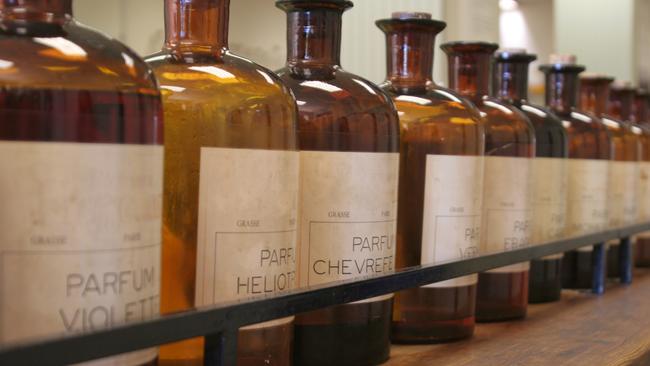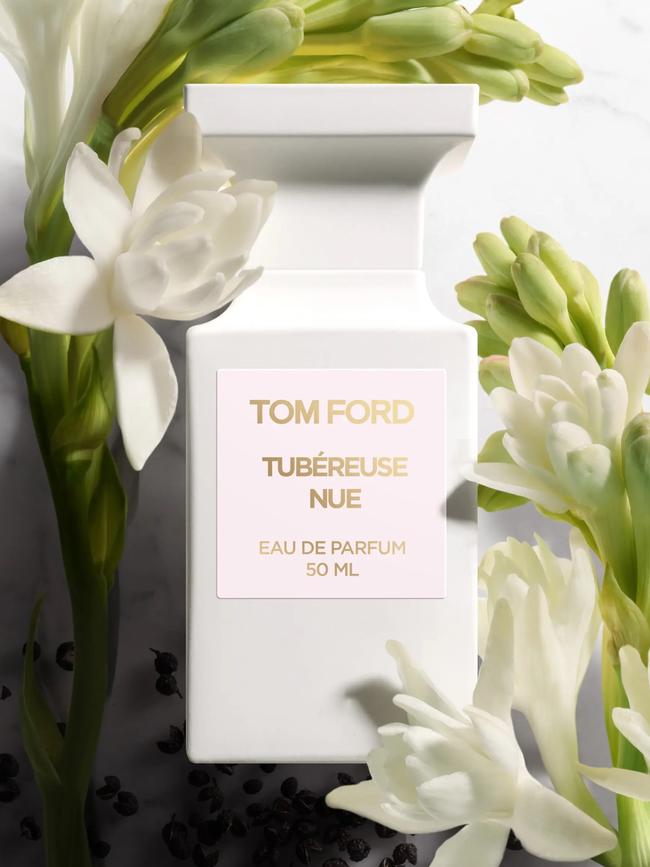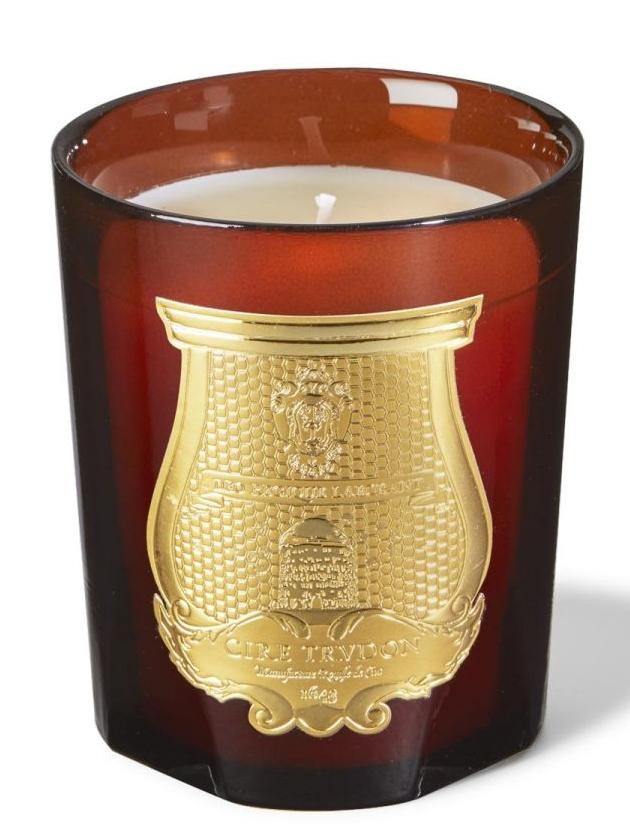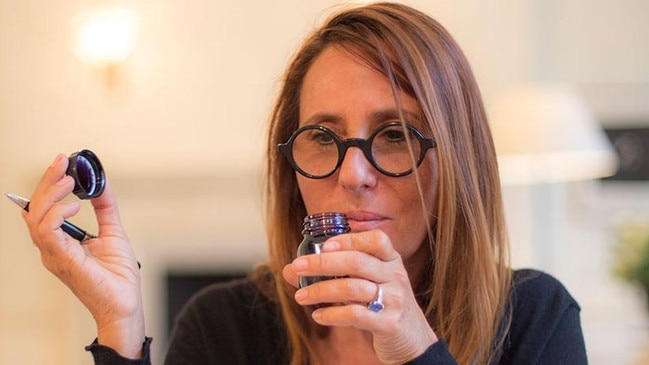Hermes, Jo Malone, Tom Ford fragrance and beauty sales defy the pandemic
Luxury fragrances remain in vogue despite the pandemic - call it the power of fragrance on our moods and memories.

I’m not sure why I stopped spritzing fragrance during lockdown last year. My favourite scents – Byredo’s Gypsy Water, Jo Malone’s Wood Sage and Sea Salt, and the floral notes of Burberry’s My Burberry, sat abandoned on my dresser. Was it that I associated a fragrance with special moments or celebrations, which were periodically paused? Or had the downtime established that I actually wear scent for everyone around me? And if that was true, why had I spent hours combing department store floors, or nose-deep in the beauty cupboard at work seeking out a fragrance to effortlessly suit my mood or occasion, when this mid-pandemic social experiment had proven it wasn’t, in fact, for my own enjoyment after all?
It turns out I’m the anomaly. In France, a country for which an appreciation of fragrance borders on obsessive, premium fragrances saw an online boost of 41 per cent in 2020, according to data collection company NPD. Anecdotal evidence suggests a similar pattern in Australia, where retailers and beauty brands alike saw fragrance and skincare sales usurp make-up. “Thinking back about when we were in complete lockdown, I remember regularly wearing fragrance for myself before sitting down to work,” says Julien Pruvost, creative director of luxury home and personal fragrance company Cire Trudon. “Scent is a message to the world but it is also a very powerful and uplifting invisible structure, whether emanating from a candle or applied on your skin.”
With quite literally more time to stop and smell the roses, our sense of smell, largely considered one of the least appreciated senses, is having a moment. In 2019, however, it was a different story: a study by the National Library of Medicine ranked smell as the least valuable sense, behind sight, hearing, touch and taste. “If you look at what insurance companies will pay for loss of smell, it’s certainly a lot less than other senses … it’s not considered particularly important,” says David Laing, an adjunct professor and researcher in the area of smell at the University of New South Wales. Pruvost agrees: “Strangely enough it’s the least regarded and studied of our senses, yet highly potent and useful.” The reason for this may be biological: experts acknowledge that unlike other animal species, human beings don’t rely on their noses to identify objects or other people, but socially and emotionally it’s one of our guiding skippers. “Fragrance is part of our emotional core,” explains Michael Edwards, fragrance expert and author of scent classifying system, Fragrances of the World. “It triggers the limbic part of our brain that controls emotion and memory.”


Which explains why we feel so off-piste without it. Anosmia (the loss of smell), and parosmia (when smell is distorted) have been recognised as both early and long-term Covid symptoms, with many patients reporting the life-altering impact of a partial or complete absence of smell long after they’ve tested negative to the virus. But with all that we now know about smell, its mystery remains entwined with its appeal. “Even today, if you asked me to describe the sense of smell, I would describe it as a large, very deep lake: we can’t see the end of it, we can’t see the other side, we don’t know how deep it is, we just know it’s there,” says Edwards. It’s a sentiment not lost on an industry that has always purported the can’t-put-your-finger-on-it effect of a heady spritz of fragrance, or the momentary pause buried in a weighty jar of jasmine-infused night cream. Put simply: when it comes to our beauty regimens, our sense of smell is intrinsically linked to how we feel.
Just look to Hermès, which with the launch of its beauty offering one year ago, championed scent in a way that other brands hadn’t thought of. The French company is one of only a handful of houses that boast an in-house perfumer (many beauty brands outsource their perfumes creations to fragrance companies). In Hermès’s case, it’s legendary nose Christine Nagel. Her work didn’t stop with perfumes: the brand’s inaugural lipstick launch, and more recently, the blush collection, are infused with a light-as-air fragrance unlike anything you associate with your make-up kit. The effect is subtle, but it’s the first thing you notice when you pop open the bullet or palette. Above colour and texture, every colleague who picked up the palette from my desk made mention of the pleasant scent.
When it comes to skincare however, for every formula that leans on delicate rose or intoxicating jojoba oil to punctuate the experience of slathering on a cream, there’s another that’s downright pungent. Perhaps unpopularly, I’m of the school of thought that when it comes to what I put on my face morning and night, the more it tingles or wafts, the better it is. Take SkinCeuticals’ C E Ferulic serum, for example. The cult product, which is periodically sold out at Adore Beauty and Mecca Cosmetica, is touted as one of the best vitamin C formulas on the market. Another descriptor for it? Metallic-smelling. Or less poetically among beauty forums, the wafting of hot dogs. Similarly, Biologique Recherche’s Iso-Placenta Cream, which I love for its ability to nix post-inflammatory pigmentation faster than any other moisturiser, boasts a disagreeable whiff not unlike fermented yeast. Thankfully, both formulas aroma dissipates within a moment of application.

Where the fragrances we spritz are concerned, perfumers behind the latest launches relied heavily on the mystery of bold ingredients to build emotional connections. Tom Ford – a house synonymous with its punchy ingredients – has launched Tubéreuse Nue, which reimagines the night-blooming floral. Jean Paul Gaultier, meanwhile, added La Belle Le Parfum to its line-up: a heady mix of bergamot, tonka bean and a dash of musk that has all the makings of another blockbuster. Personally, as well as a discovery of the new, it was a return to old ways that kick-booted my love of fragrance. I found comfort in my wedding-day scent – Jo Malone Wood Sage and Sea Salt, while the familiarity of Burberry’s My Burberry was the daily comfort I’d been missing. As Edwards so eloquently sums up: “Perfume is liquid emotion, end of story.”
This article appears in Vogue Australia’s April issue, on sale now.

To join the conversation, please log in. Don't have an account? Register
Join the conversation, you are commenting as Logout